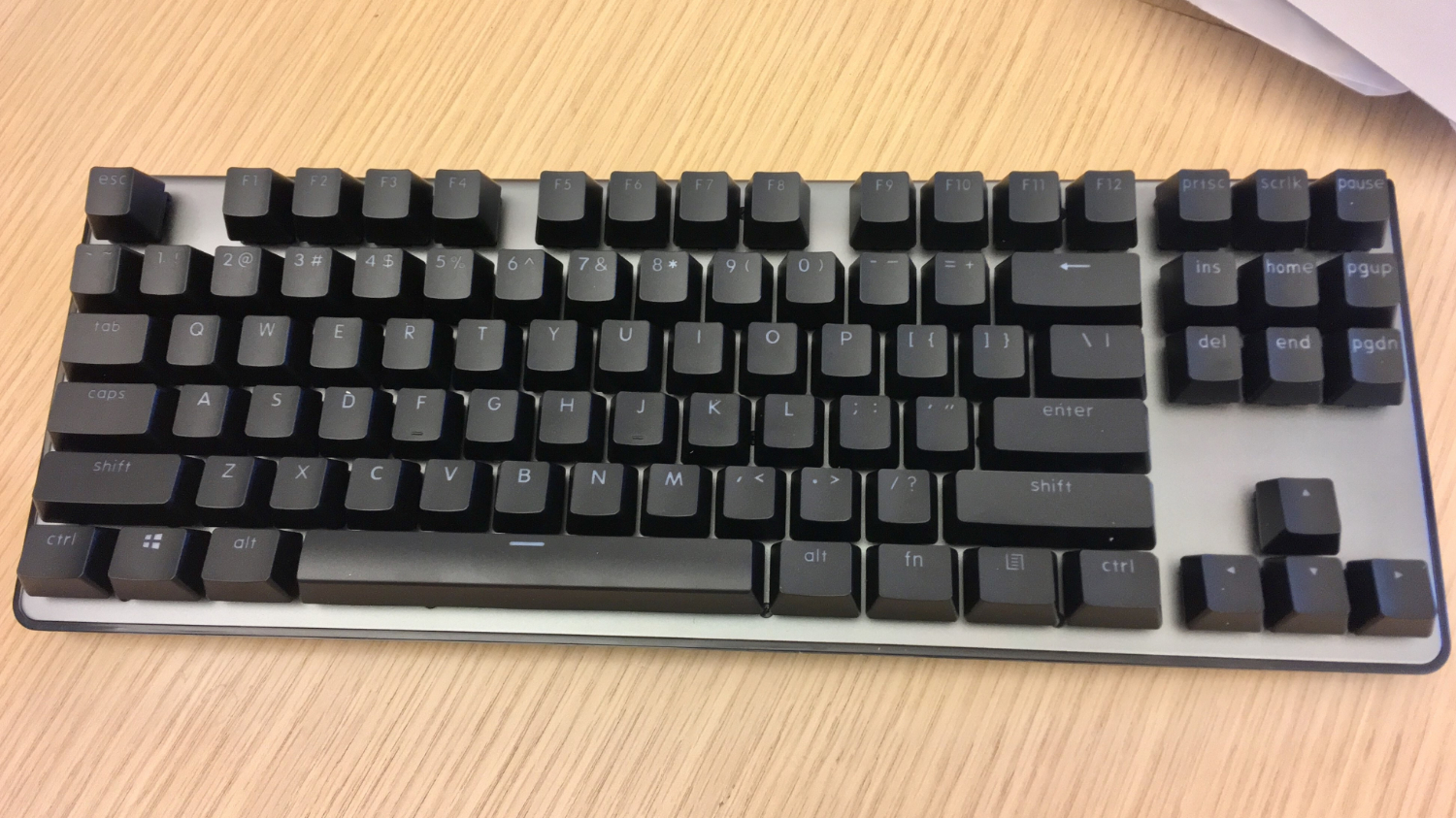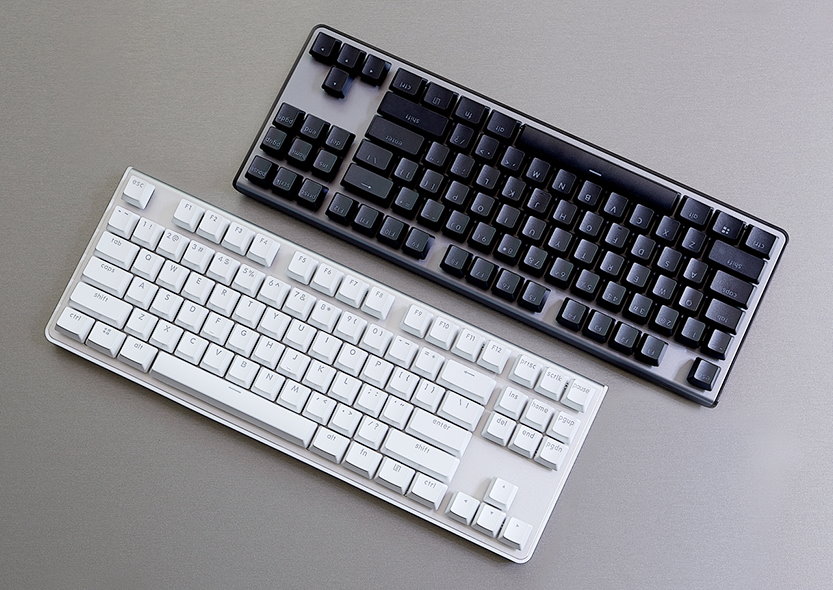G.Skill KM360 $50 Mechanical Keyboard Has Cherry MX Red Keys, Zero RGB
G.Skill today released a compact tenkeyless 87-key mechanical keyboard designed for professionals and gaming enthusiasts. The KM360 is priced at $49.99 and features Cherry MX mechanical key switches and ABS double injection keycaps all sitting on a solid brushed aluminum top-plate.
Connecting to a PC via a detachable USB Type-C cable, the KM340 comes in black or white versions. The company describes the keyboard as the perfect daily workhorse keyboard for the office and gaming.
The vast majority of the switches are Cherry MX Red linear, which go straight down and are meant to be quiet. The unit we have in our office isn't silent, but is very quiet and much more so than clickier mechanical keyboards. However, the space bar uses a Cherry MX Black switch, which is a bit stiffer and springier. Each key has a 2mm key actuation length and 50 million keystroke rating.
The keyboard's lettering is supposed to be safe from fade or wear with long term use, thanks to the ABS double injection keycaps. This process yields a smoother feel than laser-etched or traditional keycaps. Meanwhile, the solid aluminum top-plate gives the KM360 a premium look, is smooth to the touch and seems easy to clean.
Although the KM360 does not have RGB LEDs, it does include white LED backlighting to help you see the keys. These lights have five levels of brightness.
Other features include N-key rollover for all keys, anti-ghosting, as well as the activation indicators for Caps Lock, Scroll Lock and the Windows key integrated into each key. According to G.Skill's announcement, "each keycap row is designed with a different lift and angle" to help your fingers type more comfortably and naturally.
The G.Skill KM360 tenkeyless keyboard is currently available with a 1-year limited warranty at Newegg in black and white.
Get Tom's Hardware's best news and in-depth reviews, straight to your inbox.

Joe Shields is a staff writer at Tom’s Hardware. He reviews motherboards and PC components.

